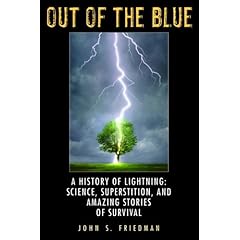I am currently reading Darwin's On the Origin of Species. What a fascinating book. I have a distinct feeling that those who claim to uphold this text as some great saviour to knowledge of our origins clearly have never read it. Darwin here is providing us with more questions than answers. Thus far, I am getting the distinct impression that what scientific philosophy perpetuated the geocentric model of the solar system is the SAME philosophy behind the perpetuation of evolution. Conjecture, and lots of it. Think what you want, whatever "seems" right. It's not enough to humbly accept missing information anymore.
And I know this from personal experience. How often have I lied to myself in order to provide some closure to holes in my knowledge. It was not with truth or fact that I closed the gaps, but with conjecture that had absolutely no basis on what really "was". The more I immerse myself in the fascinating world of scientific philosophy, the more I determine that empirical knowledge is still considered a debatable source of truth, and that conjecture is a viable substitute. Some things never change.
Not that all men are to be horribly blamed, I think. After all, we come to conclusions on our own after all the data have been mined, and the experiments are completed. How do we know what data to look at? How do we know what is the "truth" of all that we observe?
I rather like Wernher von Braun's opinion on the matter:
Scientific concepts exist only in the minds of men. Behind these concepts lies the reality which is being revealed to us, but only by the grace of God.
and Michael Faraday's as well:
Man's natural mind is a very unstable thing, and most credulous, and the imagination, often rules it when reason is thought to be there.
Monday, December 07, 2009
The philosophical miscellany of a journey through yet undiscovered country.
About Me

- Name: Marcian
- Location: Arlington | 76006, United States
First and foremost, a sinner saved by grace. Young woman grappling with the physical and emotional rigors of adulthood. Living the life I never wanted, and loving every minute of it. Giving every moment to God and trusting in His providence. And running the race for the imperishable crown, only to one day cast it at the feet of Him who won it for me.
Atmospheric Conditions
- Arlington Weather
- Severe Weather
- National Centers for Environmental Prediction
- Texas Severe Storm Association
- AMS/NWA North Texas Chapter
- Tempest Tours SCE
- Extreme Instability
- The Extreme Instability Blog Storm Effects
- Bill Reid's StormBruiser
- Everything Weather
- Meteorologist Jeff Haby
- Stormtrack.org
- StormScapes
- American Meteorological Society
- Lightning Field Installation
- Mike Peregrine
- High Plains Regional Climate Center
Essential Blogs
- Centuri0n
- Don Sands
- Truth Matters
- Bluecollar
- Sarah's Journal
- Apples of Gold
- Pearls and Diamonds
- Jazzy Cat
- GOOD NIGHT SAFE HOME
- More Books and Things
- JeepsterBoy
- Sweet Tea With Lemon
- six steps | 2 Samuel 6:13
- Old Paths
- The Upward Call
- Beholding His Glory
- Scribe
- Fish and Cans
- Shadow of His Wings
- Against Heresies
- Voice of Vision
- Doxoblogy
- Joe's Jottings
- Captain Impossible
- The Independent Variable
- Journey of the Heart
- Amazing Grace and Old Chevys
- Camp on This
- Run2Cross
- Duologos
- TeamPyro
- Mike Ratliff
- Sharper Iron
- Coffee Trader News
- Old Truth
- The Shepherd's Scrapbook
- Baptist Girl
- Practicing Theology
- Our Daily Thread
- Biblical Christianity
- roadwearyexpastor
- The English Muffin
- Craft Leftovers
Currently Reading
Previous Posts
- Now, I'm not going to say this out too loudly, but...
- On doing hard things
- Change Upon ChangeElizabeth Barrett BrowningFive m...
- Step 1 of Directing Myself
- Soliciting advice
- Update
- It's just one of those places in life where I feel...
- What I've discovered lately is that we all seem to...
- Recession
- 1. For as much as I'm disappointed with Lewis' The...









1 Comments:
Yes, science is certainly not without problems, at least when humans are involved and there's a lack of information. But it's the best we have. There really is no alternative. You can't say religion is an alternative, because how can you interpret (e.g.) the Bible without a scientific method? If you try to interpret it objectively, you're using science, doing the same thing Darwin did, with all the same issues. If you interpret it subjectively, then it just means whatever you want it to mean. Biology, meteorology, theology, ... they're all essentially the study and interpretation of God/creation/revelation, right?
Post a Comment
<< Home